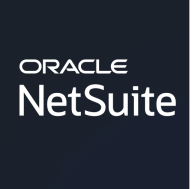

Find out what your peers are saying about Salesforce, Microsoft, ServiceNow and others in CRM Customer Engagement Centers.
I recommend that those considering Microsoft Dynamics CRM conduct an ROI exercise to determine scalability and complex business needs because it is indeed a fantastic tool, especially if Microsoft can provide a better commercial model, which can significantly impact cost-effectiveness.
My current organization finds NetSuite ERP really helpful for cost reduction and return on investment in the long run.
I would rate customer support as ten out of ten.
While the support operates within their standard SLA, it can be difficult to speak directly with someone over the phone.
Sometimes the technical support for Microsoft Dynamics CRM is not qualified enough, and in some situations, we know the tool better than they do.
For the support of NetSuite ERP, I find that you have to buy it to get fast responses.
Microsoft Dynamics CRM is highly scalable, rated at ten, even fifteen out of ten.
I would give it a ten out of ten for scalability.
Microsoft Dynamics CRM is scalable; it's easy to scale, but when customizations become extensive, maintainability can become challenging.
For golden partners, NetSuite ERP provides more options and enhanced reliability for scalability.
I would rate it ten out of ten.
There have been instances where issues with Microsoft Azure have affected Dynamics due to the infrastructure layer.
For any issues, Workato contacts NetSuite ERP directly to resolve tickets or problems.
More use-case-oriented material should be provided to help users and implementers learn how to do more, faster.
Microsoft Dynamics CRM needs improvement in simplifying the setup and configuration process, which can be relatively complex when we want all features to work properly.
Microsoft Dynamics CRM doesn't provide solutions that allow you to transform easily if you have a heterogeneous mix of technologies or if your contact center is on analog and you try to digitize it.
The addition of AI features in NetSuite ERP would enable automatic triggering, approval processes, and event streams to IT teams or cross-functional teams.
My sales and warehouse managers don't find the demand planning feature effective.
The pricing of Microsoft Dynamics CRM can be complex due to Microsoft's complicated licensing model.
Microsoft Dynamics CRM costs about $110 to $115 per user per month, following a recent price increase.
Although it is a good tool, it is costly.
My IT managers say that some of their features are quite expensive.
The backend storage integrates seamlessly with OneDrive, and the solution offers robust security features, including Azure integration, two-factor authentication (2FA), and comprehensive audit trails.
The CRM is very fast, which is the most important aspect, and it's very handy.
The most valuable feature of Microsoft Dynamics CRM is its integration with Outlook and other Microsoft products like Microsoft 365, which includes emails, Teams, and SharePoint.
The interface is easily understandable even for a common user, unlike the NetSuite ERP direct website which requires more technical knowledge.
NetSuite ERP's inventory management feature has helped optimize stock levels and customer satisfaction because the inventory management module is decent.
| Product | Market Share (%) |
|---|---|
| Microsoft Dynamics CRM | 19.8% |
| Salesforce Service Cloud | 14.2% |
| ServiceNow Customer Service Management | 9.4% |
| Other | 56.6% |
| Product | Market Share (%) |
|---|---|
| NetSuite ERP | 17.5% |
| Oracle Fusion Cloud ERP | 20.6% |
| SAP S/4HANA Cloud | 15.5% |
| Other | 46.4% |


| Company Size | Count |
|---|---|
| Small Business | 41 |
| Midsize Enterprise | 22 |
| Large Enterprise | 19 |
| Company Size | Count |
|---|---|
| Small Business | 27 |
| Midsize Enterprise | 6 |
| Large Enterprise | 5 |
Microsoft Dynamics CRM is a comprehensive customer relationship management solution that helps businesses streamline their sales, marketing, and customer service processes. With its user-friendly interface and powerful features, it enables organizations to effectively manage their customer interactions and drive business growth.
One of the key features of Microsoft Dynamics CRM is its sales automation capabilities. It allows sales teams to track leads, manage opportunities, and close deals more efficiently. The solution provides a centralized platform for managing customer information, enabling sales representatives to access real-time data and make informed decisions. It also offers tools for forecasting, pipeline management, and sales analytics, helping businesses optimize their sales processes and drive revenue growth.
In addition to sales automation, Microsoft Dynamics CRM offers robust marketing automation features. It enables marketers to create and execute targeted marketing campaigns, track campaign performance, and generate actionable insights. The solution provides tools for lead management, email marketing, social media integration, and customer segmentation, allowing businesses to engage with their customers effectively and drive marketing ROI.
Furthermore, Microsoft Dynamics CRM helps organizations deliver exceptional customer service. It provides a unified view of customer interactions, enabling customer service representatives to deliver personalized and timely support. The solution offers case management, a knowledge base, and self-service portal capabilities, empowering customers to find answers to their queries and resolve issues on their own. It also provides tools for service analytics and reporting, helping businesses identify areas for improvement and enhance customer satisfaction.
NetSuite ERP (Enterprise Resource Planning) is a cloud-based business management software that provides a suite of applications to support various business functions, such as finance, accounting, order management, inventory management, and human resources. It is designed to help organizations streamline and automate their operations, improve decision-making, and increase visibility into key performance metrics. NetSuite ERP integrates all business processes in a single system, providing a real-time, unified view of the business and enabling organizations to manage their operations more efficiently and effectively.
NetSuite ERP Features
NetSuite ERP has many valuable key features. Some of the most useful ones include:
NetSuite ERP Benefits
There are many benefits to implementing NetSuite ERP. Some of the biggest advantages the solution offers include:
Reviews from Real Users
NetSuite ERP is a solution that stands out when compared to many of its competitors. Some of its major advantages are its friendly user interface, customizable dashboards, reporting, scalability, stability, and much more.
GirirajInja, Head of IT operations at Karma technology, says, "As NetSuite ERP is a cloud product, a valuable feature I found in it is the very friendly user interface. You can set up shortcuts within the applications for frequently used reports or navigation. You can also customize dashboards in NetSuite ERP. Another feature I found valuable in the solution is good reporting. It has many industry-standard reports focused on finance and inventory. I also like the seamless switching between production and test environments and that you can customize the environments within NetSuite ERP.”
Another PeerSpot user, Mohammed I., Sales Manager at Inspirria Cloudtech, states, "NetSuite is significantly more affordable than Oracle EBS and offers a wider range of features than other OEMs.” He also adds, “[It] includes multiple modules, is scalable, and stable.”
We monitor all CRM Customer Engagement Centers reviews to prevent fraudulent reviews and keep review quality high. We do not post reviews by company employees or direct competitors. We validate each review for authenticity via cross-reference with LinkedIn, and personal follow-up with the reviewer when necessary.